News

A conversation with Simbarashe Absolom Murondoti
A conversation with Simbarashe ‘Simba’ Absolom Murondoti, a 2023 Mandela Washington Fellowship at the University of Notre Dame alum who returned to campus in May to participate in the IDEA Center’s McCloskey New Venture Competition.
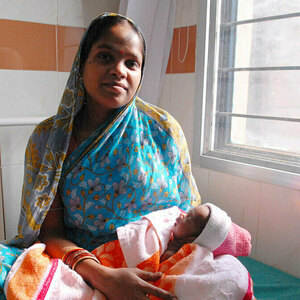
COVID-19 pandemic tied to low birth weight for infants in India, study shows
The incidence of low birth weight rose sharply in India amid the COVID-19 pandemic, according to new research from Santosh Kumar, associate professor of development and global health economics at Notre Dame’s Keough School of Global Affairs.
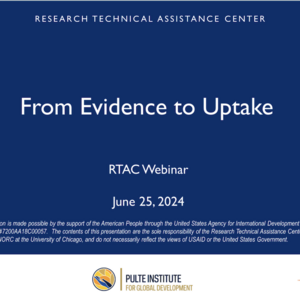
"From Evidence to Uptake" - A Webinar on Cross-National Writing and Research Communication
On June 25, Dr. Nancy Rydberg and Mr. Kevin Mann delivered a webinar for the Research Technical Assistance Center entitled "From Evidence to Uptake". During the presentation, Rydberg and Mann introduced the process that Notre Dame led, along with research partners, to carry out cross-national writing and research communications workshops.

Pulte Institute Hosts 24 Mandela Washington Fellows
The 2024 Mandela Washington Fellows, 13 women and 11 men, come from 21 countries: Angola, Botswana, Burkina Faso, Burundi, Côte d'ivoire, Ghana, Kenya, Lesotho, Malawi, Mauritania, Mauritius, Namibia, Nigeria, Republic of the Congo, Rwanda, Senegal, Tanzania, The Gambia, Uganda, Zambia, and Zimbabwe. All of the Fellows share a common entrepreneurial spirit and have proven successes in promoting innovation and positive change in their professional and personal communities.

Updates from the Field: i-Lab Students in Nigeria
Sam Gadway, Saad Kamil, Muhindo Malunga, and Valentina Muñoz are in Nigeria to research social cohesion in NGOs and the private sector. Through the i-Lab program, Keough School Master of Global Affairs students spend a summer collecting and coding global development-related data in the field.
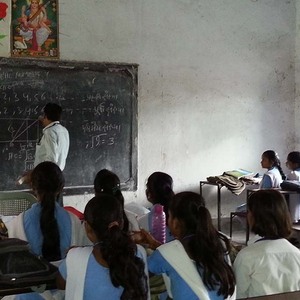
Seeking evidence-based policy, economist investigates how anemia impacts education for adolescents in India
In low- and middle-income countries, anemia reduction efforts are often touted as a way to improve educational outcomes and reduce poverty. A new study, co-authored by a Notre Dame global health economics expert, evaluates the relationship between anemia and school attendance in India, debunking earlier research that could have misguided policy interventions.
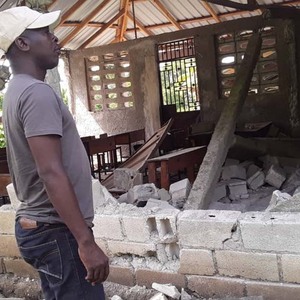
Notre Dame researcher champions local leadership for life-saving disaster assessment
The earthquake that struck southwest Haiti in August 2021 killed thousands of people and left more than half a million seeking help. New research by a University of Notre Dame expert finds that the assessment of this disaster can serve as a model for evaluating future disasters and making life-saving improvements.

Celebrating Ten Years of Mandela Washington Fellowship at Notre Dame
In celebration of the 10th anniversary of the Mandela Washington Fellowship program at Notre Dame, we had the privilege of speaking with a few of our alums. They shared how the Fellowship at Notre Dame has profoundly impacted their lives, enabling them to use their experiences and knowledge to do extraordinary work in the world.
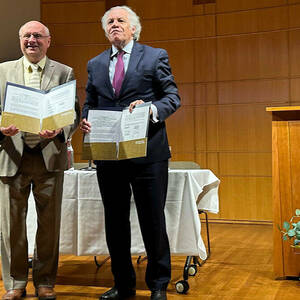
Keough School and Organization of American States partner to protect democracy and human rights
The University of Notre Dame’s Keough School of Global Affairs and the Organization of American States have launched a new partnership to strengthen democracy and defend human rights efforts across Latin America. To that end, the institutions will collaborate on joint research and policy projects, exchange faculty experts and train undergraduate and postgraduate students and researchers who work in development, human rights and democracy.
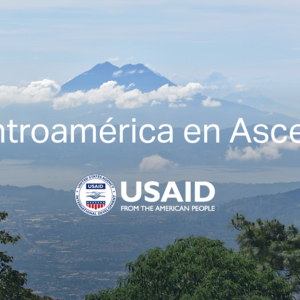
Institute of International Education Partners with Notre Dame in New USAID Program for Central American Human Rights Defenders
The University of Notre Dame will support the Institute of International Education’s USAID award of the Centroamérica en Ascenso Fellowship as one of three academic institutions providing a haven for individuals working on behalf of human rights in Central America. Applications for one- and two-year fellowships through the program are open now through June 7, 2024 for the inaugural cohort.

Migration Motivated by More Than Just Poverty and Violence
In an article in The Conversation, Senior Researcher Estela Rivero discusses her research with colleagues Tom Hare and Laura Miller-Graff, showing that employed youth with strong support networks are more likely to migrate to the U.S. for better opportunities. “This challenges conventional wisdom,” she writes. “The reality we found is complex and highlights the nuanced interaction between resilience and migration intentions.”

Mary Gallagher appointed dean of the University of Notre Dame’s Keough School of Global Affairs
Mary Gallagher, the Amy and Alan Lowenstein Chair in Democracy, Democratization and Human Rights and director of the International Institute at the University of Michigan, has been appointed the Marilyn Keough Dean of the Keough School of Global Affairs by University President Rev. John I. Jenkins, C.S.C. Gallagher, who will also hold a tenured faculty position in the Keough School, begins her five-year term as dean on July 1.

Climate Change, Human Health, and Sustainability
In commemoration of Earth Day, we're highlighting a recent gathering featuring the Keough School's Ellis Adjei Adams and Tracy Kijewski-Correa and Biological Science's Jason Rohr discussing the pressing necessity of adapting to global warming. They highlight why fighting climate change is so urgent and why it’s important to create resilient, forward-looking infrastructure that anticipates future challenges rather than relying on outdated models.
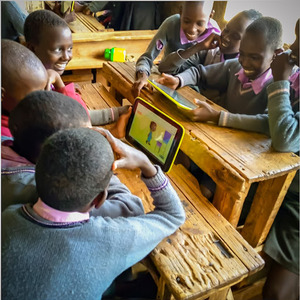
Towards Equitable and Inclusive Digital Learning in Kenya
Drawing from lived experiences in rural Kenya, Caleb Ndaka analyzed experiences of teachers to understand challenges and opportunities of achieving equitable and inclusive digital learning in low-income settings.
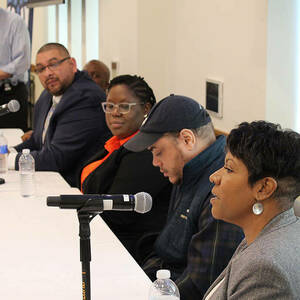
They Came to Make a Difference: Social Entrepreneurship Trailblazers
These entrepreneurs and mentors have led the way and opened doors for others. And they have no plans to stop. The Keough School's Social Entrepreneurship Day not only celebrates the ingenuity and perseverance of innovators but encourages undergraduates to embark on their own journeys.

New Research Shines Light on Child Labor
Pulte’s Danice Brown Guzmán and ND BIG Lab’s Eva Dziadula’s research study in Nepal reveals the complex relationship between child labor and school attendance, highlighting gender disparities and differing perceptions between children and adults.
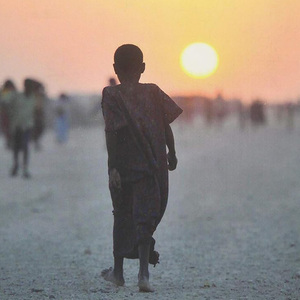
Integrating Local Leadership in Development Programming
In the current debate about localization, we need to consider our accountability to local actors, argues SHARE Monitoring, Evaluation and Learning Director Katharina Anton-Erxleben. A poignant moment with a local colleague in Uganda revealed the cultural tensions and power imbalances in global aid efforts. It's time, Anton-Erxleben says, for a reimagined approach that values local voices and fosters genuine collaboration.
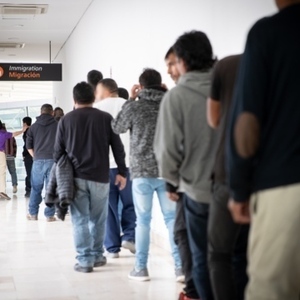
Between a Rock and a Hard Place: The Honduran Youth Dilemma
A study by Pulte Institute researchers explores the relationship between the social resources of Honduran youth and their intentions to migrate. Contrary to common beliefs, the study found a reduced desire to stay put among young Hondurans who are employed and have strong support networks. Instead, those with jobs leading fairly comfortable lives are the ones most intent to leave.

Mandela Washington Fellowship Returns to Notre Dame in June
The Pulte Institute announces its selection as an Institute Partner for the 2024 Mandela Washington Fellowship for Young African Leaders. Beginning in mid-June, Pulte will host its tenth cohort of emerging African business leaders for a six-week Leadership Institute sponsored by the U.S. Department of State. Selected through a rigorous application process, the 25 Fellows have established records of accomplishment in promoting positive change in their organizations, countries, and communities.
